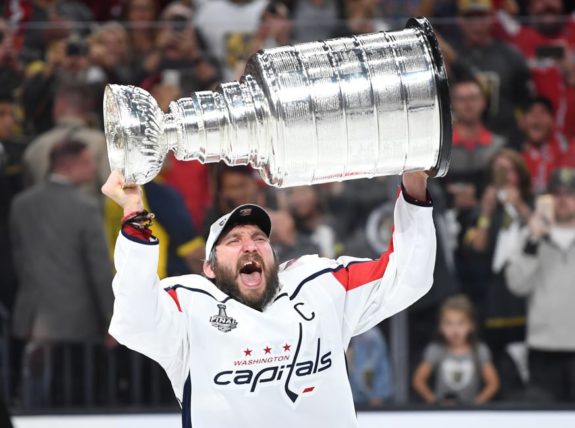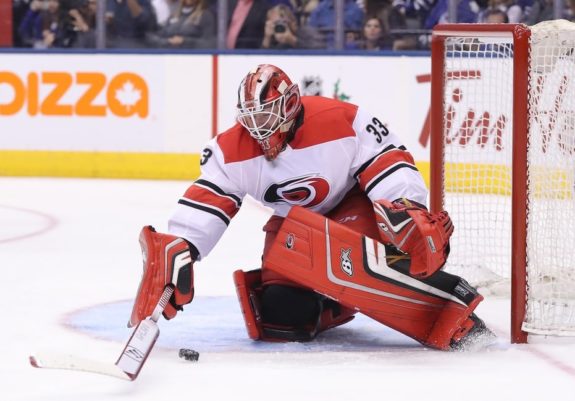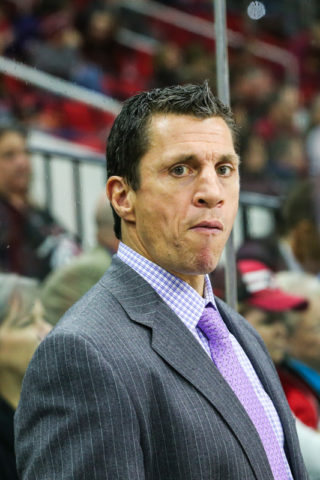Watching the recently completed Stanley Cup Playoffs revealed key aspects of playoff-caliber teams, and more importantly, championship caliber teams. The Stanley Cup Champions are the Washington Capitals, and as their play unfolded, the things that separate them from a wannabe team like the Carolina Hurricanes are glaring.
When Alexander Ovechkin loaded up repeatedly and launched his laser shots past defenseless goalies — the best in the league by the way — it was clear that the Hurricanes desperately need a player who will not hesitate to shoot and who has the ability to score consistently. The team needs playoff-caliber goaltending, too.
If the Hurricanes want to bring Lord Stanley’s Cup back to Raleigh, they will have to change several key elements of their team. The most important of which is the culture.

Champions Have a Winning Culture
If you were to go to The Hockey Writers archives and comb through every article I have published since I have been covering the Hurricanes in 2014, you would find one topic recurring more than others. “We did not start on time,” was a frequent, albeit unwelcome, subject that constantly came up in post-game press conferences.
The fact remains that no team is going to win the Stanley Cup, the Super Bowl, the World Series or the NBA Championship without a culture of winning that permeates the locker room. Even the horse named Justify, recent winner of the horse racing Triple Crown didn’t have trouble starting on time. For a horse to be a winner at the highest level, they have to come out of the gate charging.
Team sports are no different. The Hurricanes have got to get over this slack mentality that finds solace in the excuse, “We didn’t start on time.” It reminds me of a statement someone made to me recently about Scott Darling, the Hurricanes starting goaltender. They said, “He has four million reasons to get his act together.” That’s really the bottom line for most people, that these guys are paid to play a game, and the least they can do is bring their best effort to the ice on a nightly basis.

Anyone that watched the playoffs, especially the Stanley Cup Final could not help but see that there was a fierce, all-out intensity on the faces of everyone involved. It’s a culture of winning that shows up in going hard after pucks, getting in front of the net and fighting for rebounds. It’s being aggressive on power plays instead of skating around and leisurely passing the puck back and forth.
Can Brind’Amour Change the Culture?
These Hurricanes have got to get serious about wanting to win. If anyone can help them with changing the culture it’s their new head coach Rod Brind’Amour. Of course legends abound about his own commitment to fitness and his personal intensity. If he can transfer that to his team, they will be well-advanced on their journey to the playoffs. If not, he may join his predecessors Kirk Muller and Bill Peters on the coaches three to four-year plan.

Brind’Amour has won a Stanley Cup. Newly named assistant coach Jeff Daniels was with the team when they won it in 2006. There are players on the roster, like Justin Williams, who have also hoisted the Stanley Cup. In other words, there are interspersed within the organization and the locker room guys who have ascended the pinnacle of the NHL. They know what it takes to win and the intensity and sacrifice necessary to be the best.
Back in January Luke DeCock of the Raleigh News & Observer wrote, “For all their youth and exuberance and skill, this is still a soft team, too soft to win a playoff round even if the goaltending somehow holds up.” The goaltending holding up is another issue altogether. It is widely known that the Hurricanes must fix this element of their team and do so now if they want to make any progress toward the post-season.
Coaching Concerns
There are two main concerns about Brind’Amour. He has no head-coaching experience and his coaching of the power play for the Hurricanes was disappointing.
Justin Gilliland wrote at Cardiac Cane a year ago a piece that questioned if Brind’Amour might be in over his head as an assistant coach. Gilliland wrote: “The Canes man-advantage is actually not an advantage at all. It has been in the top two-thirds of the league only once since Brindy started behind the bench. Some may blame the lack of talent for the Canes’ cellar-dwelling power play. This argument is invalid when the coach on the other end of the bench, Steve Smith, is icing a number one penalty-killing unit with the likes of Jay McClement and Ron Hainsey.” Now Brind’Amour is the head coach.
All eyes will be on Brind’Amour as he tries to change the Hurricanes’ culture. Hopefully his influence on the team as a whole will be better than his influence as the power play coach. Brind’Amour can inspire and challenge and leave some of the finer technical points to his assistants.